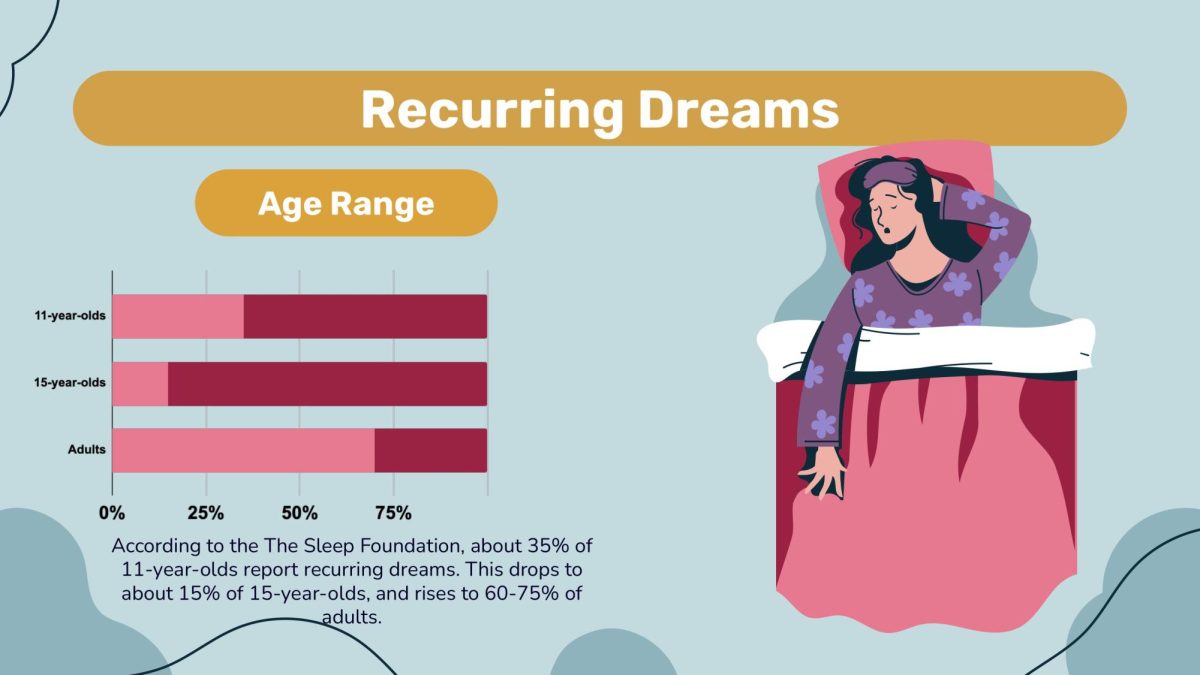
“When I was 7 years old, I had this vision where I was in the Mall of America, and my mom ran away from me. I was stuck in a burning circle of flames, and then firefighters came back to save me,” sophomore Evan Morris said. He had this dream about eight times over the course of a year. According to The Sleep Foundation, between 60% and 75% of American adults experience recurring dreams. 77% of dreams carry distressing themes, with some of the most common themes being tooth loss and car crashes.
The persistence and high prevalence of recurring dreams have led scientists and psychologists to consider their psychological implications. Recurring nightmares can become a stressor and indicator of underlying psychological instability. Adults who experience these dreams more frequently tend to show poorer psychological health. Experts think that dreams might serve as a subconscious outlet for working through unmet needs or processing trauma. Another school of thought views recurring nightmares as a survival mechanism, providing a simulated environment for practicing the detection and avoidance of danger.
So, what should one do to get rid of recurrent nightmares? Exercise can reduce stress and bring confidence and joy to daily life, improving mental health and changing dream content. Taking a social media break can help, or ditching scrolling on a phone a couple of hours before heading to bed can reduce nightmares. Other options include relaxation techniques, such as breathing exercises or structured meditation. Lastly, it’s possible to combat stressors head-on while awake by keeping a dream journal to chronicle recurring nightmares.
Fortunately, these recurring dreams don’t stay with us for too long. As Morris grew up, this dream seemed to disappear on its own. “It was a year that it happened. I don’t know why it happened. I don’t have any traumatic mall experiences, so it doesn’t make sense,” Morris said after yet another sound night of undisturbed sleep.